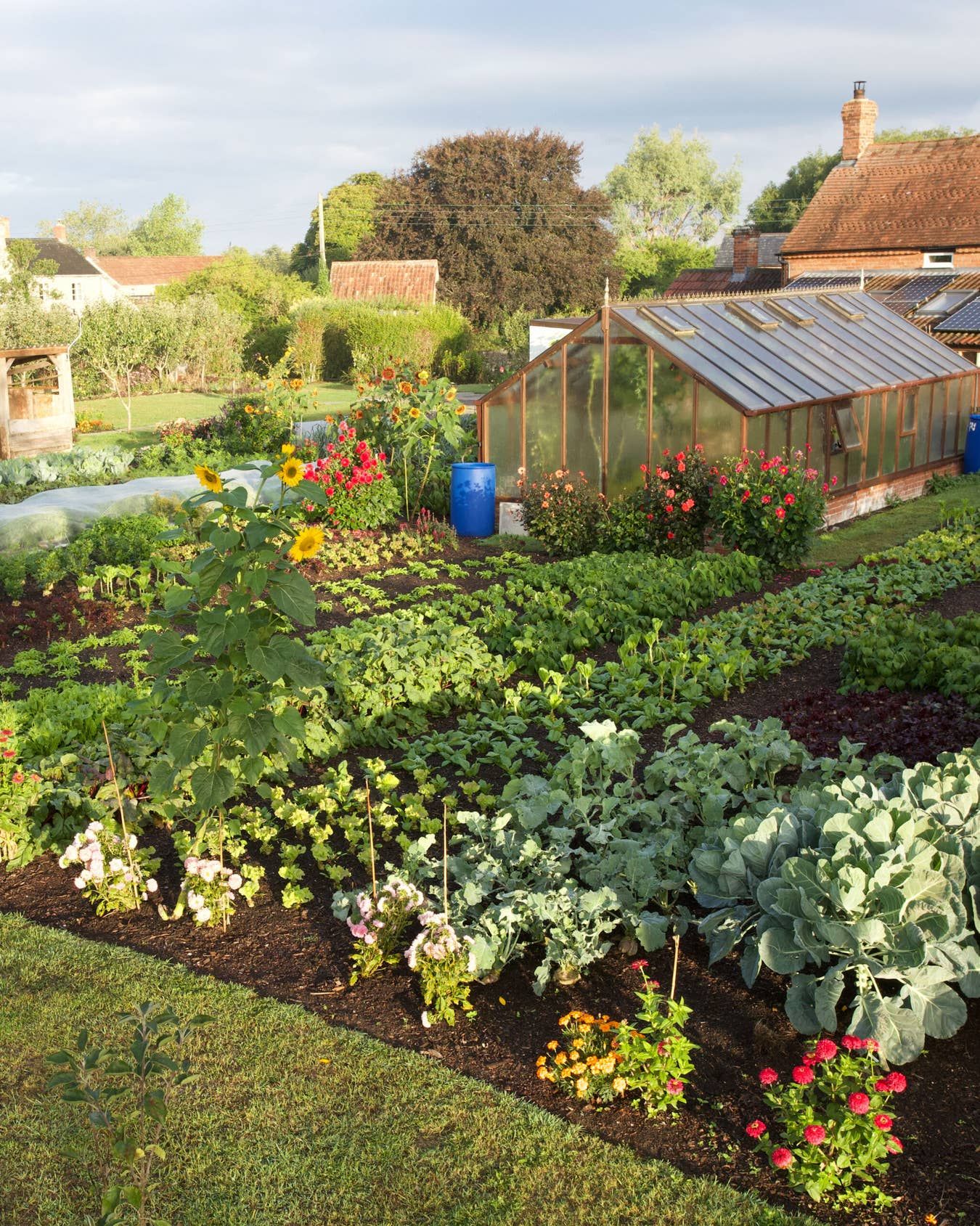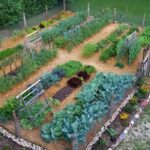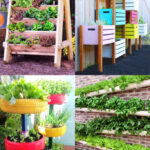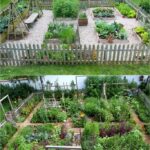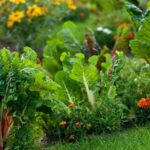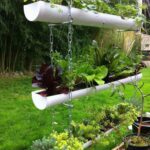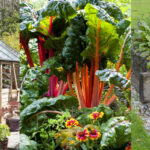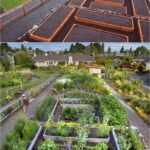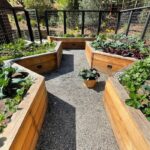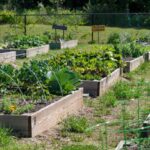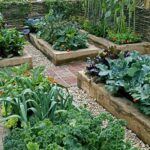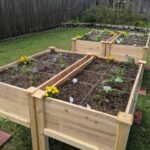1. One popular and practical veggie garden idea is raised beds. Raised beds offer several advantages, such as better soil drainage and the ability to control the type of soil used. They also make it easier to maintain your garden, as you can easily access your plants without needing to bend over. Additionally, raised beds can help to prevent weeds from invading your garden space.
2. Another great veggie garden idea is to incorporate vertical gardening techniques. Vertical gardens make use of vertical space, allowing you to grow more plants in a smaller area. This is ideal if you have limited space in your yard or want to maximize your garden’s productivity. You can use trellises, arbors, or even hanging baskets to grow climbing vegetables like tomatoes, cucumbers, and beans.
3. Companion planting is a smart veggie garden strategy that involves planting different crops near each other to benefit one another. For example, planting marigolds alongside tomatoes can help to repel pests and attract beneficial insects. Other popular companion plant combinations include planting basil near tomatoes to improve their flavor, and planting garlic near roses to deter pests.
4. Incorporating a pollinator garden into your veggie garden is another great idea. Pollinators like bees, butterflies, and hummingbirds play a crucial role in the pollination process, which is essential for the production of fruits and vegetables. By planting flowers that attract pollinators, you can help to ensure a bountiful harvest in your vegetable garden.
5. Herb gardens are a wonderful addition to any veggie garden. Herbs not only add flavor to your meals, but they also have many health benefits and can help to repel pests from your vegetable plants. You can plant herbs like basil, parsley, rosemary, and thyme in containers or directly in your garden bed next to your veggies.
6. Finally, consider adding a compost bin to your veggie garden setup. Composting is an eco-friendly way to recycle kitchen scraps and garden waste into nutrient-rich soil for your plants. By adding compost to your garden beds, you can improve soil fertility, retain moisture, and reduce the need for synthetic fertilizers. Plus, composting helps to reduce waste and minimize your environmental impact.
